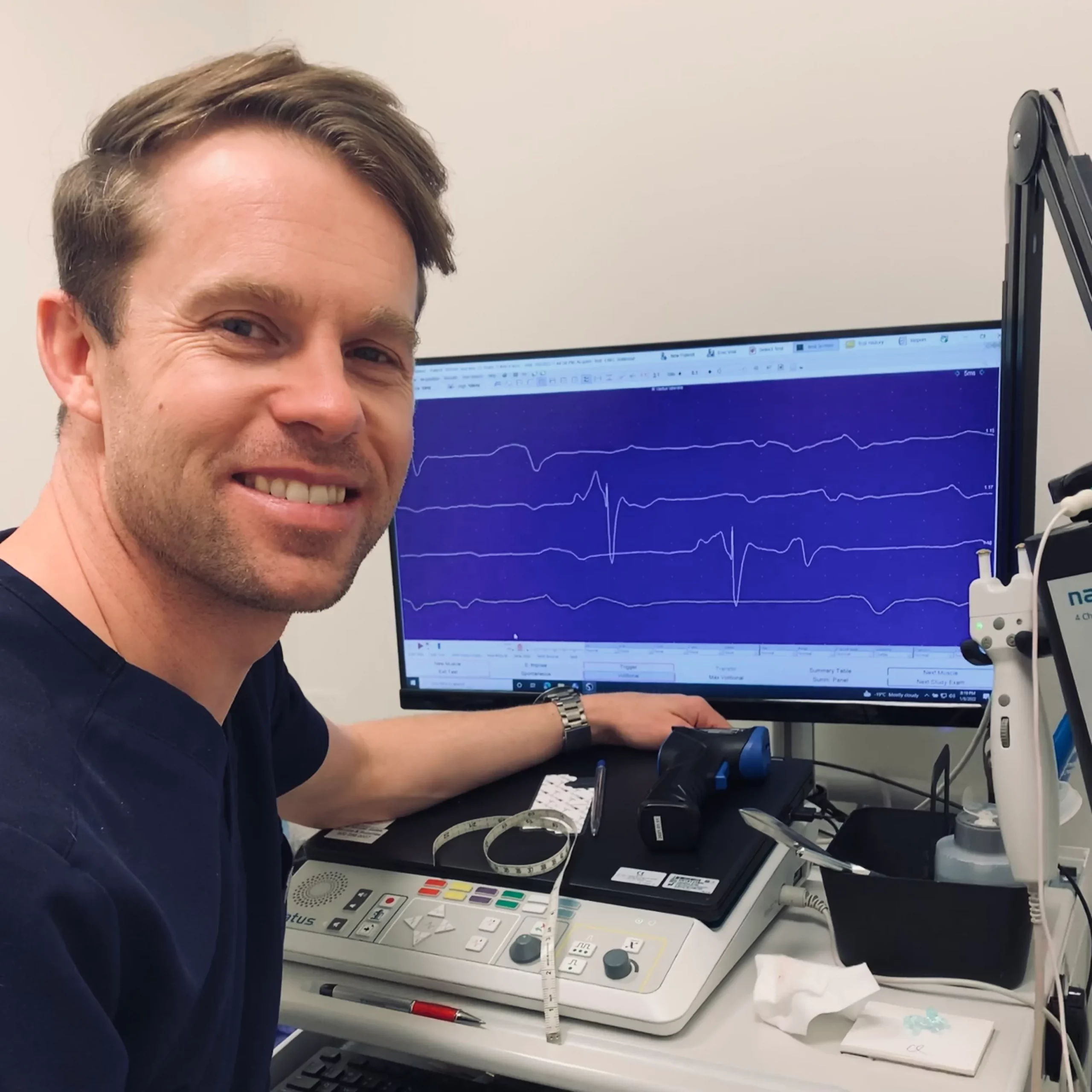Dr. Gordon Jewett’s Early Career Blog
Dr. Gordon Jewett's Blog
Athletes learn early in their sporting career that performance is impacted by countless factors; a restless night’s sleep, a meal at the wrong time, a hard workout too many, equipment poorly prepared. Because of these variables of life, athletes must judge their success by the average of their season, rather than by a single best or worst result. As a cross-country ski racer in my former life, I learned this lesson time and again. It was this experience, now in my second career as a neuromuscular clinical and research fellow, that led me to consider more continuous measures of disease progression in amyotrophic lateral sclerosis (ALS).
Currently, people with ALS are assessed in clinic every 3-6 months by measuring strength, respiratory function and grading self-assessed functional status. People with ALS, just like elite athletes, are prone to intrinsic and extrinsic factors that can affect their performance in these measures; a long drive to clinic, a mild viral infection, a poor sleep the night before. This impacts the accuracy of our patient assessments and introduces noise into our disease monitoring data. The heterogeneity of disease progression in ALS adds to the challenge of quantifying disease state and making comparisons between individuals. These are important challenges that may have contributed to the failure of many disease modifying therapy clinical trials over the past three decades.
My aunt Joan McDonald, a celebrated Olympic archery coach, often quoted Einstein “Insanity is doing the same thing over and over and expecting different results.” A reminder to always look carefully at the actions that lead to every outcome, and to modifying those actions in pursuit of a different result. This is exactly what we are doing in our attempt to bring disease monitoring into the homes of patients with ALS. Our pilot clinical trial uses consumer grade smart watches (Fitbits) to continuously monitor people with ALS in their daily lives. We will take advantage of the large volumes of sensor data and apply machine learning algorithms to detect changes in an individual’s disease state. By using consumer grade devices, we aim to develop a tool that is cost effectively scalable to any person with ALS that owns a smartwatch. The challenges of this approach are numerous: we do not know what activities are being performed when data is collected, real world data is notoriously noisy, and consumer grade device data is subject to heavy pre-processing beyond our control. The challenges are balanced by great potential for a different result, which we hope will be a more precise understanding of ALS disease progression.
I look forward to keeping you updated on our progress in the coming year. I have a lot to learn as we face unique challenges in this project and when I next write a blog update, I have no doubt I’ll have new ideas to share. Thanks for reading and Happy New Year!
About Dr. Gordon Jewett
Dr. Jewett studied software engineering before completing his medical school at the University of Calgary in 2016. He became a Fellow of the Royal College of Physicians of Canada in 2021 after completing his adult neurology residency in Calgary. As a resident he was inspired by the complexity of the peripheral nervous system and the challenges in diagnosis and treatment of neuromuscular disease. He is currently completing a 2-year clinical and research fellowship in neuromuscular neurology with the strong clinical group at the University of Calgary. His research work will include completion of a master of neuroscience supervised by Dr. Lawrence Korngut and Dr. Joon Lee. His thesis is focused on development of novel disease biomarkers in amyotrophic lateral sclerosis (ALS), based on wearable sensors and machine learning. His research is generously funded by ALS Canada and the Canadian Institutes of Health Research (CIHR). At every opportunity he escapes the city to explore the Rocky Mountains by ski, foot or bike with his two young daughters and partner.











